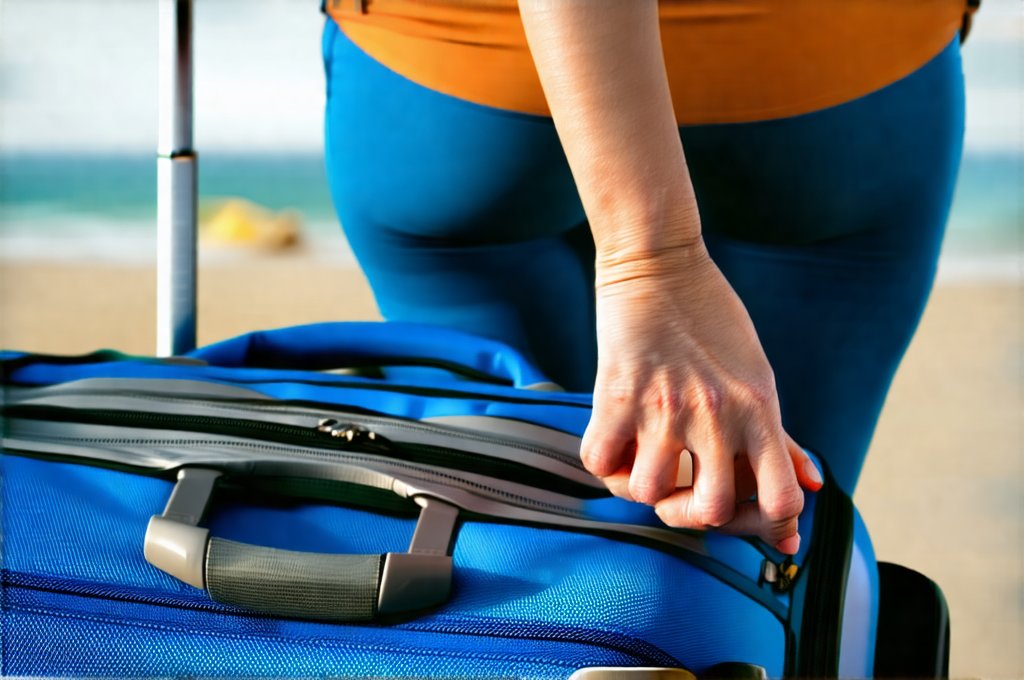Cystitis, an inflammation of the bladder, is a surprisingly common ailment affecting many individuals, particularly women. While often manageable at home, experiencing a flare-up while traveling can quickly derail even the most carefully planned trip. The discomfort—urgent and frequent urination, burning sensations, and lower abdominal pain—can make exploring new destinations or simply enduring long journeys incredibly challenging. This guide aims to equip travelers with proactive strategies and practical advice for managing cystitis when away from the comfort of their usual healthcare routines, focusing on prevention, recognizing symptoms, and effective coping mechanisms to minimize disruption and maximize enjoyment during travel.
Traveling inherently introduces changes to routine – different foods, varying levels of hydration, altered bathroom facilities, and potential stress – all factors that can contribute to cystitis flare-ups or even trigger initial infections. Understanding these triggers and implementing preventative measures before you depart is crucial. This isn’t about fearing a trip; it’s about being prepared and empowered to manage your health effectively while embracing adventure. The following information will provide practical steps you can take, from packing essential supplies to adjusting hydration habits, ensuring you remain comfortable and confident throughout your travels.
Prevention: Building a Cystitis-Friendly Travel Plan
Proactive prevention is undoubtedly the best approach when it comes to managing cystitis during travel. Before even thinking about packing your bags, consider how your travel itinerary might impact your bladder health. This begins with hydration – consistently drinking enough water is vital, but timing and type of fluids matter too. Avoid excessive caffeine, alcohol, and sugary drinks as these can irritate the bladder. Plan for frequent bathroom breaks, especially during long journeys, and don’t hesitate to utilize facilities even if you only have a slight urge. This prevents holding urine for extended periods which can exacerbate symptoms or contribute to infection.
Packing a small “cystitis kit” is also highly recommended. Include items like cranberry supplements (though evidence regarding their effectiveness is mixed, some find them helpful), pain relief medication approved by your doctor, and antiseptic wipes for hygiene in unfamiliar restrooms. Consider packing travel-sized bladder wash solutions if you use them regularly. Furthermore, paying attention to clothing choices can make a difference; avoid tight-fitting garments that restrict airflow and can create a humid environment conducive to bacterial growth. Finally, be mindful of personal hygiene, especially after using public facilities. If you are concerned about flare ups while traveling, understanding how to prevent cystitis can also provide peace of mind.
Coping with Flare-Ups on the Go
Even with diligent prevention, flare-ups can still occur. The key is recognizing early symptoms – increased frequency, urgency, burning sensation during urination – and responding promptly. Don’t dismiss mild discomfort hoping it will resolve; address it immediately to prevent escalation. Hydration remains paramount: increase your water intake significantly. Over-the-counter pain relief medication (always check with your doctor beforehand if you have any underlying health conditions) can help manage the discomfort. If you suspect a full-blown urinary tract infection (UTI), seeking medical attention is crucial, even while traveling.
Locating appropriate healthcare facilities in an unfamiliar location can be daunting. Before your trip, research potential clinics or hospitals near your destination and note down their contact information. Travel insurance that covers medical expenses is invaluable. If symptoms are severe – fever, back pain, nausea, blood in urine – seek immediate medical attention. Remember to document your symptoms and any medications you’ve taken, as this will be helpful for healthcare professionals. Don’t hesitate to explain your situation clearly and request assistance if needed; most healthcare providers are accustomed to assisting travelers. Understanding how to manage a UTI while traveling is essential for quick action.
Managing Symptoms During Different Travel Scenarios
Traveling presents unique challenges depending on the mode of transport.
1. Air Travel: Airplane cabins are notoriously dehydrating, increasing the risk of cystitis flare-ups. Drink water consistently throughout the flight – avoid alcohol and caffeine. Wear loose-fitting clothing for comfort. Utilize the restroom frequently, even if just to empty a small amount. Bring antiseptic wipes to clean the seat area before using the toilet. If you experience significant discomfort during the flight, inform a member of the cabin crew; they may be able to offer assistance or relocate your seat.
2. Road Trips: Long car journeys involve prolonged sitting, which can exacerbate bladder symptoms. Plan frequent stops every two hours for bathroom breaks and stretching. Stay hydrated, but avoid excessive fluids right before long stretches of driving. Consider using a travel cushion to improve posture and reduce pressure on the bladder area. If you’re the driver, be mindful that discomfort could affect your concentration; consider switching drivers if necessary.
3. Cruises & All-Inclusive Resorts: While seemingly relaxing, cruises and all-inclusive resorts can expose travelers to different food and drink options which might trigger cystitis symptoms. Be cautious with consumption of sugary drinks, alcohol, and spicy foods. Ensure you have access to clean bathroom facilities. If a UTI is suspected, inform the ship’s medical staff or resort doctor immediately – most offer on-site healthcare services. It’s also important to consider how to handle social life while traveling and not feel pressured to participate in activities that might exacerbate symptoms.
The Role of Diet & Hydration During Travel
Maintaining proper hydration isn’t just about drinking more water; it’s about making informed choices regarding fluid intake. As mentioned earlier, limit caffeine, alcohol, and sugary drinks, as these can irritate the bladder. Opt for plain water, herbal teas (avoiding those known to be diuretic), and diluted fruit juices. Consider incorporating foods with natural diuretic properties – cucumber, watermelon, celery – into your diet to help flush out toxins and support urinary health.
Dietary adjustments are also crucial. Avoid acidic foods like citrus fruits, tomatoes, and spicy dishes as they can aggravate bladder inflammation. Focus on a balanced diet rich in fiber to promote overall digestive health, which indirectly supports bladder function. When eating at restaurants or trying new cuisines, be mindful of portion sizes and potential irritants. Packing healthy snacks – nuts, seeds, whole-grain crackers – can help you avoid impulsive food choices that might trigger symptoms.
Seeking Medical Help Abroad: A Practical Guide
Navigating healthcare systems in foreign countries requires preparation. Before traveling, research the medical facilities available at your destination. Your travel insurance should provide details on how to access care and what documentation is required. When seeking medical attention, clearly explain your symptoms to the doctor or nurse – be specific about the frequency, urgency, and any associated pain.
- Bring a list of all medications you are taking, including dosages.
- If possible, have a translation app on your phone to facilitate communication if language barriers exist.
- Ask for a written report detailing your diagnosis and treatment plan – this is important for insurance claims and follow-up care upon your return home.
- Be aware of cultural differences in healthcare practices; some countries may require upfront payment for medical services. If you struggle with recurrent cystitis, it’s important to seek a long term solution.
Remember, managing cystitis while traveling requires proactive planning, mindful coping strategies, and a willingness to seek help when needed. By prioritizing bladder health and preparing for potential flare-ups, you can minimize disruption and fully enjoy your travel experiences.





















